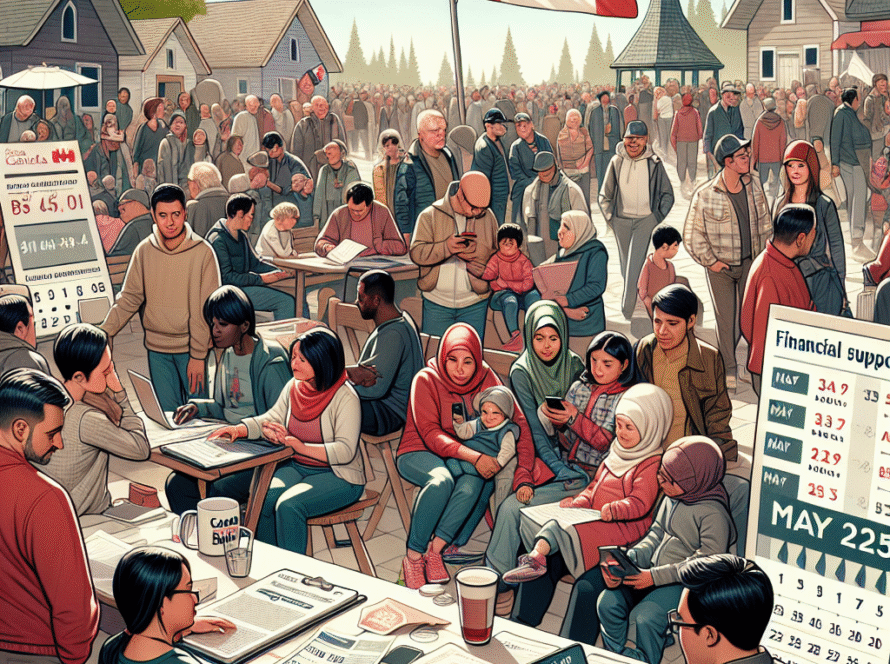2025 Quebec Immigration: Essential Changes You Need to Know

Quebec’s Immigration Overhaul: Key Changes Coming in 2025
As Quebec gears up for significant transformations in its immigration system in 2025, understanding these shifts is essential for prospective immigrants and those currently navigating the province’s unique pathways. These changes not only aim to manage the influx of newcomers but also reinforce Quebec’s cultural identity through a strong emphasis on the French language. Here’s what you need to know.
Key Changes to Quebec’s Immigration Policies
-
Targeted Immigration Levels: Quebec plans to welcome between 48,500 and 51,500 immigrants in 2025, maintaining a target consistent with previous years. A notable 72% of this intake is expected to come from economic immigration, translating to approximately 31,000 to 32,900 newcomers.
-
French Language Emphasis: The province is doubling down on its linguistic priorities, aiming for 95% of economic immigrants to be French speakers and 79-80% francophone applicants overall. This strategy not only preserves Quebec’s cultural identity but also aligns with the labor market’s demand for bilingual professionals.
-
Suspension of the PEQ Graduate Stream: A significant change is the temporary suspension of the Quebec Experience Program (PEQ) Graduate Stream until June 30, 2025. This halt will reduce the target for Quebec Selection Certificates (CSQs) issued to PEQ Graduates drastically from 14,500 in 2024 to between 4,500 and 5,700 in 2025, impacting many international graduates seeking permanent residency.
-
Stricter Language Requirements: Starting November 23, 2024, the PEQ Graduate Stream will impose stricter requirements: applicants must have completed 75% of their program in French. This change aims to ensure that graduates are adequately equipped to integrate into Quebec’s society and economy.
-
Revised Skilled Worker Program: The Regular Skilled Worker Program has been renamed to the Skilled Worker Selection Program (PSTQ), with invitations paused until June 2025. New caps will limit candidates from any single country to 25% of invitations in a given draw, promoting a more diverse immigrant landscape.
-
Suspension of Low-Wage LMIA: Effective September 3, 2024, Quebec will suspend Labour Market Impact Assessments (LMIAs) for low-wage job offers below a median wage threshold. This move aims to prioritize high-wage positions and better balance temporary foreign worker utilization within the labor market.
- Family Sponsorship Cap: Between June 26, 2024, and June 25, 2026, Quebec will implement a cap on family sponsorship applications, allowing 10,400 spots for spouses and dependent children and 2,600 for other relatives. This measure is designed to manage the economic impacts of family reunification while addressing housing pressures.
The Broader Implications
These policy changes are significant for several reasons:
-
Cultural Preservation: Quebec’s insistence on French proficiency highlights the province’s commitment to maintaining its unique cultural and linguistic identity in an increasingly globalized world.
-
Economic Alignment: By focusing on economic immigrants, Quebec aims to attract skilled professionals who can meet the demands of its labor market, thus fostering economic growth and sustainability.
- Resource Management: With rising concerns over housing and social service capacities, these controlled immigration levels reflect a strategic approach to ensuring that Quebec can adequately support its new residents.
A New Era for Quebec Immigration
As Quebec prepares for these changes, the focus on French-language proficiency, economic needs, and diversity signals a robust strategy to create a balanced immigration system. For prospective immigrants, staying informed and prepared for these evolving policies will be crucial in navigating their paths to residency in this culturally rich province.
In conclusion, Quebec’s immigration landscape is set for a transformation that not only prioritizes linguistic and economic factors but also seeks to ensure sustainable growth and integration for newcomers.



